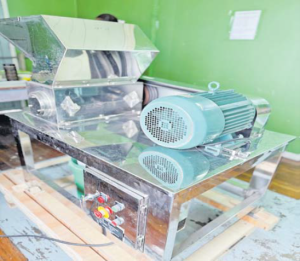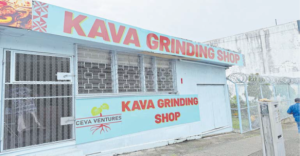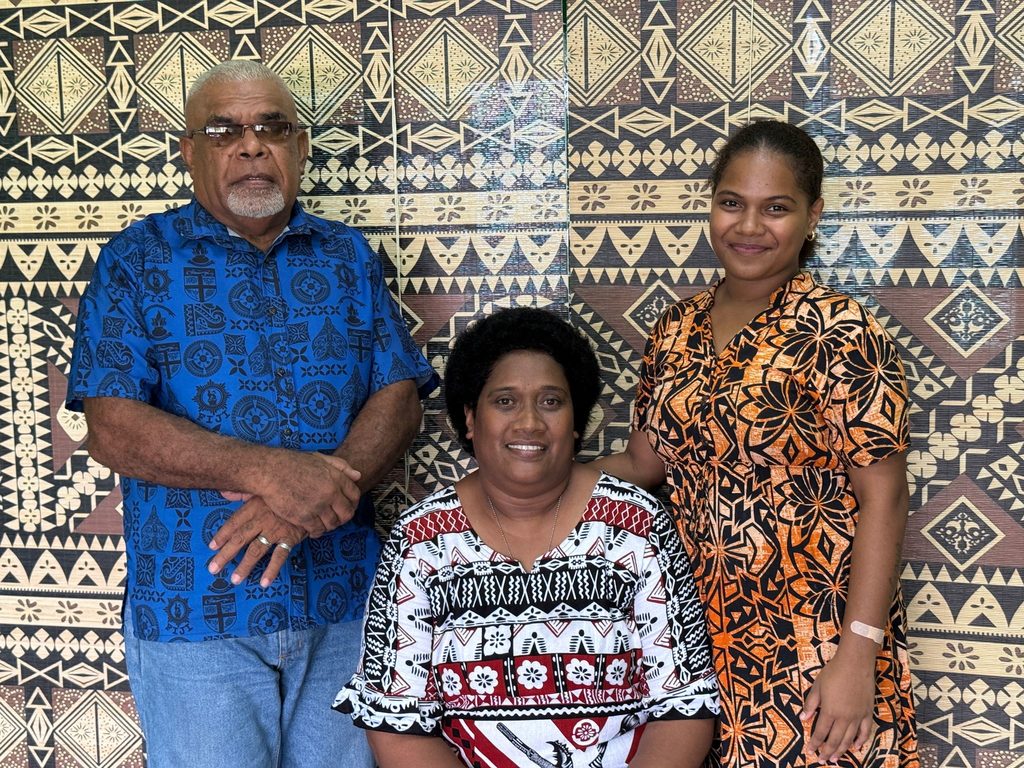IN many Pacific communities, women play a pivotal role in economic growth and development. In Fiji, their involvement in business is not only empowering for them personally but also instrumental in driving innovation, creating job opportunities and lifting families and communities out of poverty.
A powerful example of this is Amelia Tavola, a Fijian woman who turned a family trip to Kadavu into the spark for a successful kava (yaqona) processing business.
Originally from Nabouwalu, Ono in Kadavu and with maternal ties to Rakiraki in Yale, Ms Tavola is married to a man of Gujarati descent and they have a daughter.
Before diving into our interview, her appreciation and belief in divine purpose shone through — she believes her gift for business is a blessing from God.
While in Kadavu, Ms Tavola and her relatives observed the labour-intensive process of pounding kava roots into powder.
“My family noticed how much effort it took to pound the kava. We thought, what if there was a way to make this process easier for the farmers and vendors,” she said.
This moment sparked the idea: invest in machines that could grind the kava roots more efficiently, saving time and energy while adding economic value.
Recognising a business opportunity that could also uplift farmers, Ms Tavola and her family imported two machines from China worth around $30,000 — a crusher that grinds the kava, and a pulveriser that produces fine powder, ideal for export-quality products.
“These machines make it easier for farmers who would otherwise risk injury pounding the kava manually. It’s also a cleaner, faster way to prepare it for sale,” she said.
While the business now serves both local and export markets, Ms Tavola said the motivation behind starting the enterprise was family focused.
“My main goal was to create opportunities for my family — to help them earn an income and give them freedom through employment,” she said.
She employs two team members, including a close relative, Apete Naitini, who oversees the workspace.
Ms Tavola believes that indigenous Fijians must prioritise hiring family members, especially when employment is scarce in rural areas.
The market response has been promising. Farmers and vendors bring their kava to her site, where it is weighed, processed, and priced based on quantity. Rates begin at $5 but scale down with larger volumes.
“The more kava you bring, the more cost-effective it becomes,” she noted.
But Ms Tavola is quick to point out that this business isn’t just about profit.
“It’s about supporting farmers and making it easier for them to process their kava for both local and overseas markets.”
Before launching her own company, Ms Tavola worked for over 15 years in Suva at GEM Fiji Pte Ltd, first in administration and then as a department manager.
She also held finance roles at hotels in Sigatoka and Deuba Inn and supported NGOs like the Universal Peace Federation and various women’s groups, giving her valuable experience in managing operations and finances.
It was during conversations with her husband that they decided she would spearhead the family venture, Ceva Adventures.
The business now operates out of 126 Toorak Road, Suva, serving as a hub for farmers wanting to process kava for export.
Tavola credits much of her success to staying connected to her roots.
“In Kadavu, everyone knows each other through our family, clans and villages. That network makes it easier to build a strong foundation for a business,” she said.
By collaborating closely with local farmers, she tailors services to their needs — whether they require powdered kava for export or coarser grinds for local sale.
Education also played a crucial role in her development.
Ms Tavola participated in various training programs through the National Training and Productivity Centre and NGOs, which boosted her confidence to speak publicly and advocate for her business.
Her advice to aspiring entrepreneurs, especially women: “Don’t look down on yourself. When God created Eve, he also blessed her with wisdom and strength.
Your journey might not be easy, especially if you didn’t finish school, but your business dream is still valid. Keep pushing forward — one day, your name will be known.”
She extended an open invitation to kava farmers and businesses interested in exporting their product to visit her facility and test the machinery.
“We’re here to help. If you need your kava processed for export or local sale, we’ll take care of it.”
Amelia Tavola’s story is a testament to the power of vision, family, and purpose — and a reminder of why supporting women entrepreneurs is an investment in sustainable, community-driven progress.





